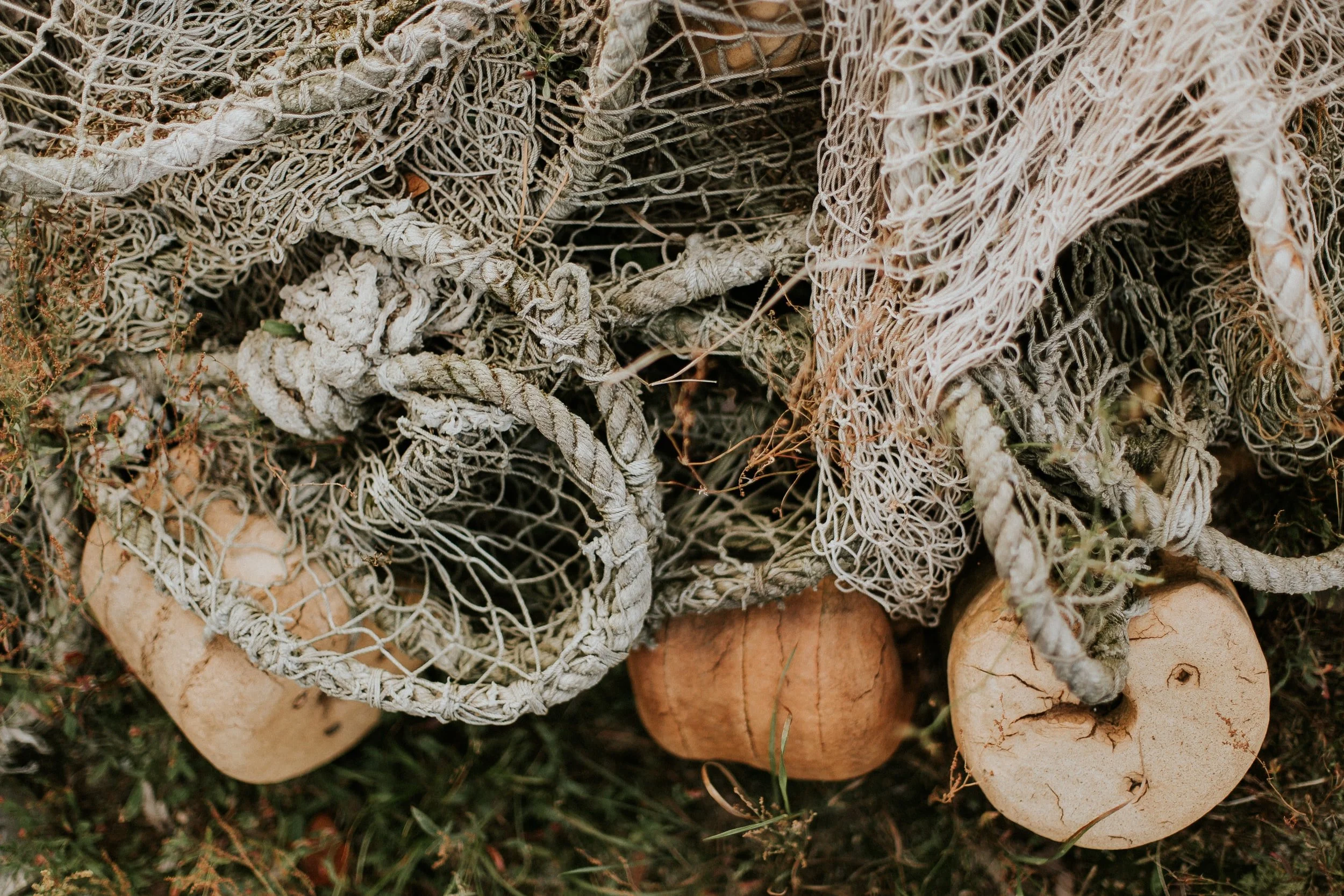When The Fishing Has Failed
I imagine he was exhausted.
Even if you aren’t a fisherman, I’m sure you can relate to some degree—I know I can. Have you ever bent your will and effort toward a singular goal, with the added weight that this was your profession and therefore should be demonstrably easy for you? Have you ever felt the growing dread that your efforts, no matter how much you will it otherwise, are likely to reap no reward—that you will fail? Have you ever made the short leap between your actions failing, and your identity absorbing that label—I am a failure?
I have.
That’s why I read the story of Jesus and Peter’s experience with a cautious curiosity. Cautious, because I’m tired of my tendency to wear old paths thin, but also tired of the rhetoric of triumphalism that sometimes surrounds these events. Do you recall how the story goes?
Peter, no stranger to Jesus, has been fishing all night, yet has returned empty-handed. Of course, this was no planned fishing trip with his mates—a good night out that only occurs after we’ve all consulted our calendars—no, this was his job. Peter was a professional fisherman. His job was to catch fish, sell fish, and provide for his family with the proceeds. But Peter had failed.
Luke picks up the story (Luke 5) with Peter washing his nets on the banks of the lake with the rest of his fishing co-op. The entire fishing expedition had been a failure, and even the tiresome work of tending to the nets in readiness for the next trip couldn’t be sweetened with the knowledge of his potential earnings. Peter was working, but working for no reward.
Of course, Jesus is never far away, and even as the fisherman are cleaning their nets, Jesus has begun his daily ritual of unfolding the Word of God to any who would stop to listen. On this day, while Peter’s stores were empty, the beaches were full. Crowds gathered until it was uncomfortably cramped, even for an open-air event. So Jesus interrupts Peter and asks him a favour, “Do you mind if I use your boat, Peter? Could you just cast off a little way from the edge while I continue teaching?”
I imagine he was exhausted. I imagine his body ached, his eyes felt dry and longed to just close, and that he’d been thinking about a solid meal and a good wash.
“Peter—do you mind?”
The nets will have to wait.
“Umm, sure. Is this far enough?”
Peter probably watched his fishing partners continue cleaning up, while he sat in the bow and silently listened to Jesus peeling back the layers that so many other Rabbi’s had painstakingly concealed God’s Word with. Peter had never heard anyone preach like Jesus did—it was unheard of, at least in his lifetime. There just didn’t seem to be any categories that could explain Jesus, not unless you believed the whispers that had begun to circulate. Could he be the Messiah?
Peter was still mulling this over when he realised that it had grown quiet. Peter looked up to see the crowds beginning to thin out on the beach and disappearing over the fields that spread out toward the hills beyond. Jesus had finished. All that could be heard were the sounds of arguing birds wheeling overhead and the complaining of timber as wind and water pulled against the boat.
He was about to lift the oar and steer the boat back to shore when Jesus startled him, “Let’s go fishing.”
“Umm, okay, but I’ve just got back from fishing.”
“I know. But I thought it might be good to go fishing again—we don’t have to go far, just out a little further, where the channel runs deeper—you know the spot, right?”
“Right. We fished there last night. In fact, we fished a lot of spots last night. Fish just aren’t running at the moment—we didn’t catch anything—we’ve got nothing.”
“I know. But let’s try anyway.”
A silent moment passed between them, only disturbed by a rush of thoughts that Peter kept to himself, ‘till at last Peter simply said, “Sure. If that what you’d like to do, we’ll go fishing.”
You probably know how the rest of the story unfolds—Luke sparsely describes the chaos that must have unfolded with this matter-of-fact account.
“When they did this, they caught a great number of fish, and their nets began to tear. So they signalled to their partners in the other boat to come and help them; they came and filled both boats so full that they began to sink.” (Luke 5:6–7, CSB)
Now I’m not sure if the fault rests with poorly edited children’s Bible-story books, or that I have a selective tool in my head that just highlights the parts I like—but somewhere along the way I’ve overlooked a significant detail in this event. And maybe I’m not the only one. Because the rhetoric of this story often seems to rest heavily on “just trust Jesus and he’ll fill your nets”—a type of Christian triumphalism that stinks of a prosperity gospel. The miracle is unmistakable—no doubt about that. Peter’s willingness to obey is there too. But that’s where the triumphalism ends.
Peter doesn’t stand knee-deep in thrashing fish—the fruit of God’s blessing and the reward of his obedience—and claim the touch of God on his life. Peter doesn’t even beam at Jesus and say, “Thank you Jesus! Thank you Jesus! I knew you’d come through for me.” No.
“When Simon Peter saw this, he fell at Jesus’s knees and said, “Go away from me, because I’m a sinful man, Lord!”” (Luke 5:8, CSB)
The miracle didn’t spark a worship service, at least, not in the way we usually think of worship. The miracle sparked deep repentance. When Jesus showed up in an unexplainable way, the light of God’s holiness exposed the filth of humanity. In that moment, Peter saw through tired eyes a glimpse of the same glory that had caused Isaiah to proclaim, “Woe is me for I am ruined because I am a man of unclean lips and live among a people of unclean lips, and because my eyes have seen the King, the LORD of Armies.” (Isaiah 6:5, CSB)
I imagine you are exhausted, just like I am, just like Peter must have been. Following Jesus is hard in these strange years; and shepherding followers of Jesus is taking a terrible toll.
I imagine you are exhausted. I could have written this article to tell you to push out just once more, to throw your nets just one more time, to not give up, to trust Jesus and your nets will fill to bursting. But that’s not what you need to hear, is it? It not what I need to hear.
We both need to hear again the gracious words of Jesus, offered with gentleness and authority. We need to hear the hope of the gospel.
“Don’t be afraid,” Jesus told Simon. (Luke 5:10)
Don’t be afraid. Jesus knows our tiredness, our failings, our sin, and even our fears. He knows that you believe that the best you have to offer will never be enough, that any fruitfulness you see will come in spite of you and not because of you. Jesus sees and knows all these things—things imagined in your head, and things that are true—and his word for you today is, ”Don’t be afraid.”
The gospel is good news for worn out old fisherman like you and me. It is good news for people who feel that they’ve failed, that they’ve got nothing to show for their efforts, and that even their skills have fallen short.
The gospel is good news. “Don’t be afraid.”
I love that Peter needs to hear this lesson twice. Do you remember?
Years later we get to eavesdrop on a conversation between Peter and the other disciples—Jesus had been murdered, everything the disciples had hoped would happen hadn’t—Peter was scared, alone, and riven with guilt. What was Peter’s response to all this? “I’m going fishing.”
And there, back on that lake where it had all begun, as the sun lifted over the horizon after another night of failure, Peter hears a voice echo across the still surface of the water.
“Cast your net on the other side of the boat.”
And as the net grew suddenly heavy in his hands, as the memories came flooding back, the Peter who had once said, “Go away from me,” could not get to Jesus quick enough.
Dear friend, that’s what I’m asking you to do. Run to Jesus—dive into the water and swim if you must. Jesus is waiting—he has a warm fire and breakfast ready.
”Don’t be afraid.”





